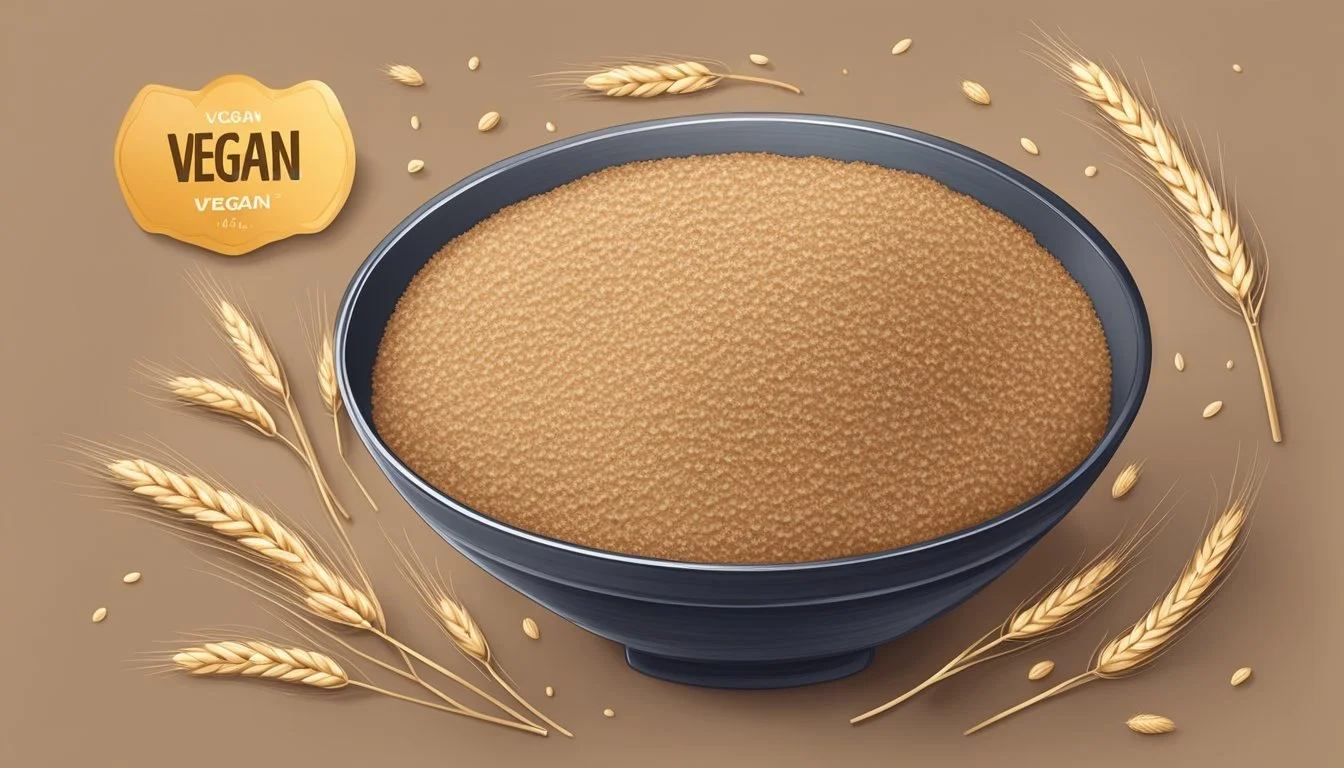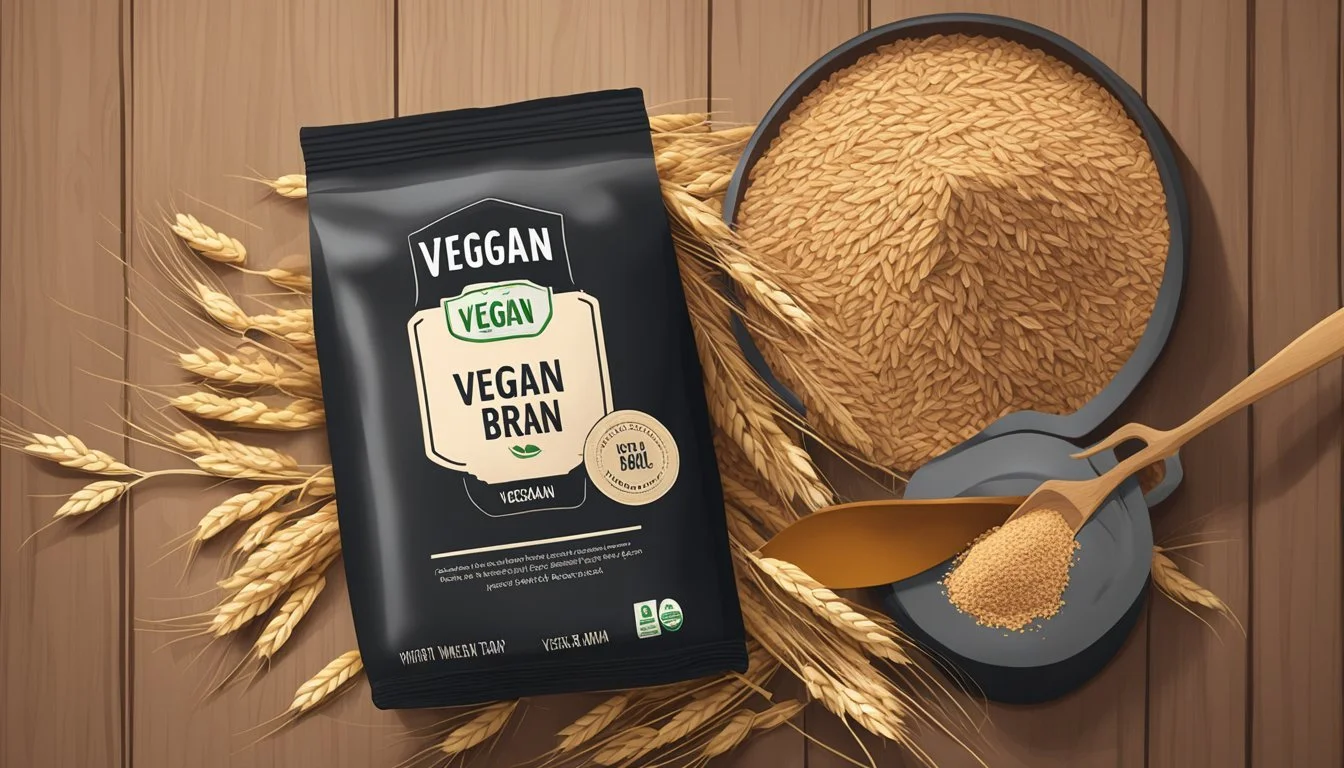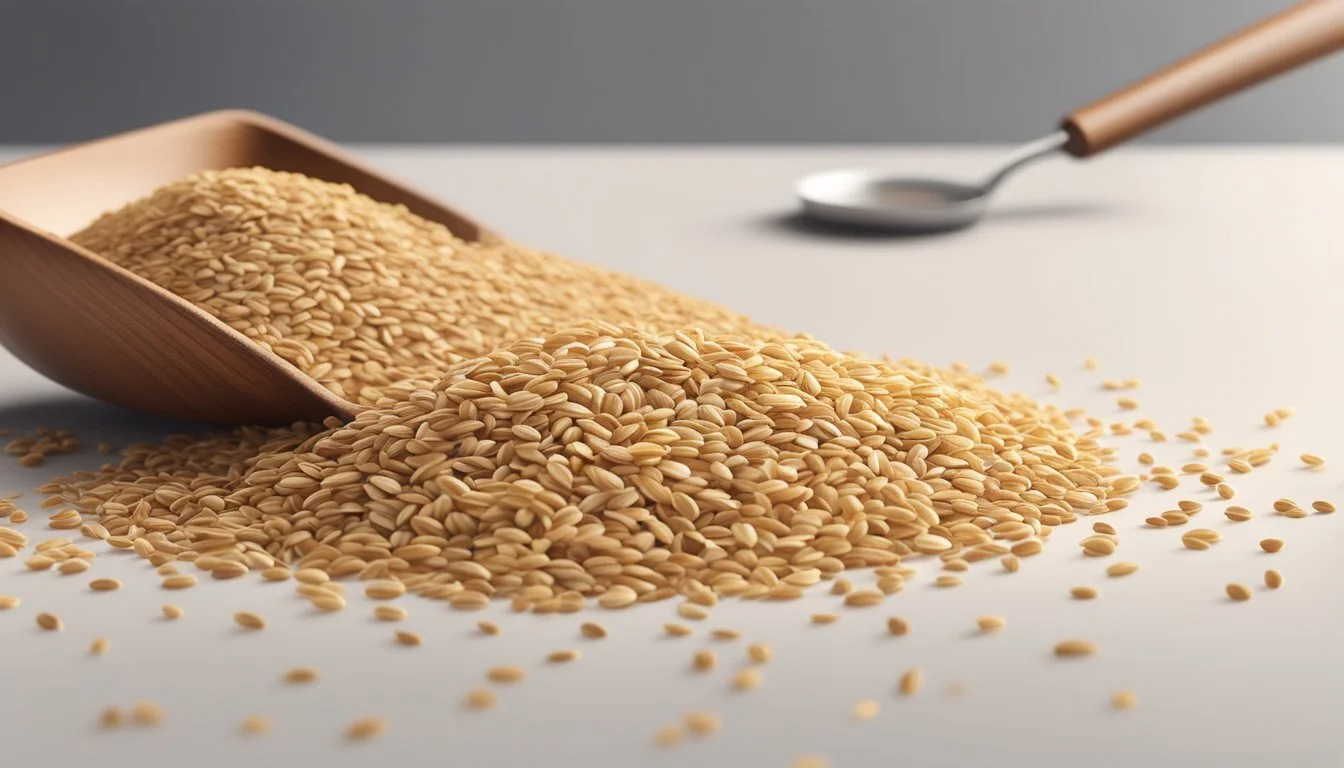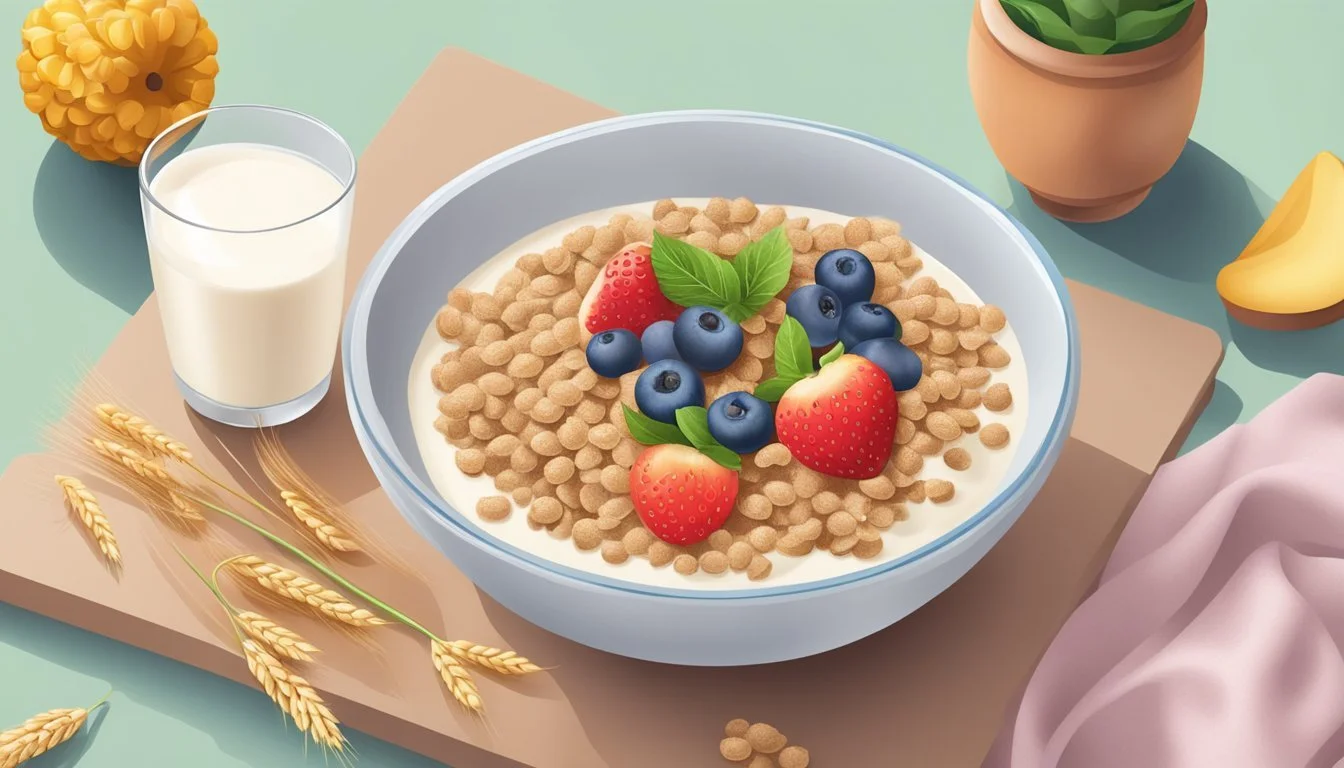Is Wheat Bran Vegan?
Unveiling the Truth About This Fiber-rich Ingredient
When exploring dietary choices, particularly a vegan lifestyle, the concern over whether certain foods comply with vegan standards is common. Wheat bran, the hard outer layer of the wheat kernel, is a byproduct of the milling process used to produce wheat flour and is inherently a plant-based product. Since it does not derive from animals, wheat bran fits within a vegan diet. Vegans can consume wheat bran confidently, knowing it aligns with their ethical choice to avoid animal products.
However, the evaluation of wheat bran's vegan status does not end at its source. Vegans must also consider the processing of wheat bran and any additional ingredients that might be included in wheat bran products. While wheat bran itself is vegan, ancillary ingredients in bran products, such as honey, milk, or eggs often found in commercial baked goods, can render the final product unsuitable for a vegan diet. Thus, vigilant label reading is essential for vegans to ensure that wheat bran-containing items are free from animal-derived substances.
Attention to detail is crucial in finding suitable vegan options, and this is particularly true with processed foods and cereals like those that contain wheat bran. For example, some fortified cereals with wheat bran may contain non-vegan ingredients like vitamin D3, which is derived from lanolin found in sheep's wool. Through careful selection and by prioritizing products that are explicitly labeled vegan, those following a vegan lifestyle can incorporate wheat bran into their diet without compromise.
Understanding Wheat Bran
Wheat bran, deemed a nutrient-rich outer layer of the wheat kernel, carries significant importance in dietary choices, particularly within veganism for its plant-based origin.
Definition
Wheat bran is the hard outer layer of the wheat kernel that is removed during the milling process. It is not the grain itself, but rather the byproduct of wheat processing which is high in dietary fiber and other nutrients while being low in fat.
Nutritional Profile
Wheat bran is known for its high levels of dietary fiber, both soluble and insoluble. This contributes to digestive health by aiding in bowel regularity. Besides fiber, wheat bran contains protein, various minerals such as iron, magnesium, potassium, zinc, and manganese, as well as small amounts of fat. It is considered a whole grain product and can be a key component in a fiber-rich diet.
Nutrient Amount per 100g Calories 216 kcal Protein 16g Total Fat 4.25g Carbohydrates 65.55g Dietary Fiber 42.8g Sugars 0.41g Iron 10.57 mg Magnesium 611 mg Potassium 1182 mg Calcium 73 mg Vitamin C 0 mg
Vegan Status of Wheat Bran
Wheat bran is inherently vegan, as it does not involve animal exploitation or cruelty in its production and is sourced from a plant. However, one should be mindful of non-vegan additives found in commercial wheat bran products that can include animal-derived ingredients.
Common Uses in Cooking
Wheat bran is versatile in cooking and baking, commonly used to add fiber and texture to dishes. Typically, it's incorporated into breakfast options like bran muffins or used as a topping for oatmeal and yogurt. Vegan bran muffins are a popular recipe within the plant-based diet community, showcasing wheat bran's compatibility with vegan dietary choices.
Ingredients Analysis
When assessing whether unprocessed wheat bran is vegan, one must scrutinize the ingredients for animal-derived products and consider alternative vegan substitutes.
Identifying Non-Vegan Ingredients
Unprocessed wheat bran itself is a vegan product, being a byproduct of the milling of whole wheat grains. However, it's used in many products that might include non-vegan ingredients. Common non-vegan additives to look out for in wheat bran products include:
Milk: Often found in breakfast cereals and baked goods.
Sugar: Some refined sugar is processed using bone char, which is not vegan.
Eggs: Frequently used as a binding agent in baking.
Vitamin D: Some brands of cereal fortified with vitamin D3, which is derived from lanolin in sheep's wool.
Vegan Substitutes
To maintain a vegan diet, individuals should look for or create recipes using vegan-friendly substitutes. Here are some common replacements:
For Milk:
Almond milk
Soy milk
Oat milk
Any other plant-based milk or non-dairy milk alternative.
For Eggs:
Flax egg: A mixture of ground flax seeds and water.
Commercially available egg replacers.
For Sugar:
Unrefined cane sugar
Beet sugar
Other natural sweeteners like maple syrup or agave nectar.
Ensuring unprocessed wheat bran remains a vegan ingredient involves careful analysis of associated ingredients and the knowledgeable selection of plant-based substitutes.
Recipes and Preparation
Wheat bran serves as a nutritious and fibrous component in vegan baking recipes, particularly in the creation of vegan bran muffins. This section will guide the reader through a vegan bran muffin recipe, along with baking tips and techniques to ensure a successful baking experience.
Vegan Bran Muffin Recipe
To construct a basic vegan bran muffin, one will need the following ingredients:
1 cup whole-wheat flour
1 cup wheat bran
1/2 cup brown sugar, alternatively maple syrup can be used
1 tsp baking soda
1 tsp baking powder
1/2 tsp sea salt
1 cup almond milk or other plant-based milk
1 tbsp apple cider vinegar
1/4 cup applesauce
1 tsp vanilla extract
Optional mix-ins: 1/2 cup raisins or nuts, 1/4 cup oats, chocolate chips, or a hint of cinnamon for added flavor
Instructions:
Preheat the oven to 350°F (about 175°C). Prepare the muffin tin by lining with paper or greasing lightly.
In a large mixing bowl, whisk together the dry ingredients: whole-wheat flour, wheat bran, brown sugar, baking soda, baking powder, and sea salt.
In a separate bowl or measuring cup, blend the almond milk and apple cider vinegar, allowing it to sit for a few minutes. This concoction acts as a vegan buttermilk substitute.
Add the wet mixture to the dry ingredients: the vegan buttermilk, applesauce, and vanilla extract. Stir until just combined, avoiding overmixing.
Fold in any mix-ins like raisins, nuts, or chocolate chips according to preference.
Evenly distribute the batter into the muffin tin. You can use an ice cream scoop for consistent sizing.
Bake for 22 to 25 minutes, or until a toothpick inserted in the center comes out clean.
Place the muffins on a cooling rack and let them cool before serving.
Baking Tips and Techniques
Consistency: The key to delicious vegan bran muffins lies in the balance between moist and fluffy textures. Applesauce is an apt replacement for eggs; it binds the ingredients while ensuring the muffins remain moist and tender.
Temperature: Accuracy with oven temperature is crucial. Always preheat the oven, and consider using an oven thermometer to verify the temperature for even baking.
Mixing: Overmixing the batter can lead to tough muffins. Mix the ingredients until they are just combined to retain a tender crumb.
Freshness: Utilize fresh baking soda and baking powder for the best rise. If they’re stale, the muffins may not rise properly.
Storage: Vegan bran muffins can be stored in an airtight container at room temperature for several days, or frozen for up to a month. To ensure they retain moisture, wrap them individually in plastic wrap before placing them in the freezer.
Muffin Liners: Using paper liners can make for easier cleanup and prevent sticking. For an eco-friendly option, silicone liners are reusable and equally effective.
By adhering to these ingredients and following the specific methods, one can prepare simple yet delightful vegan bran muffins. Remember that the quality of the muffins is directly connected to the precision and care taken during the preparation and baking processes.
Dietary Considerations
When incorporating wheat bran into their diet, individuals should consider its impact on health, potential allergic reactions, and how it fits within their macronutrient needs.
Health Benefits
Wheat bran is rich in dietary fiber, which is beneficial for digestive health. It also provides a source of essential nutrients such as B vitamins, iron, magnesium, and phosphorus. Consumers often include it in their diet to enhance satiety and to aid in maintaining a healthy digestive system.
Allergies and Intolerances
Wheat and wheat bran can cause adverse reactions in individuals with wheat allergies, celiac disease, or non-celiac gluten sensitivity. For those affected, ingestion of wheat bran can lead to symptoms ranging from mild discomfort to severe allergic reactions. Always consult with a healthcare provider before making dietary changes, especially when allergies or intolerances are a concern.
Caloric and Macronutrient Balance
Wheat bran is low in calories, making it a good choice for those monitoring their caloric intake. A typical serving size of wheat bran (about 1 ounce or 28 grams) contains the following macronutrients:
Calories: Approximately 60 kcal
Protein: Around 4 grams
Carbohydrates: About 18 grams, with most being dietary fiber
Fat: Less than 1 gram
The high fiber content contributes to a feeling of fullness, which can be helpful for weight management. Wheat bran can be incorporated effectively into a balanced diet as a source of complex carbohydrates and to ensure adequate protein intake.
Vegan Lifestyle
Adopting a vegan lifestyle extends beyond dietary decisions to encompass a holistic approach to living that prioritizes compassion and sustainability. Individuals embrace veganism with an awareness of its far-reaching impact on personal well-being and environmental health.
Impact of Dietary Choices
Vegan dietary choices are driven by a commitment to exclude all forms of animal products and byproducts. They choose plant-based items like unprocessed wheat bran, not only due to their nutritional value but also because such choices align with key vegan ideals:
Compassion: Vegans avoid food derived from animals in an effort to reduce animal suffering.
Sustainability: Plant-based diets are often associated with a lower environmental impact than diets that include animal products.
By opting for vegan foods, individuals greatly reduce their ecological footprint, aiding efforts in preserving the planet’s resources.
Beyond Diet: Vegan Choices in Other Areas
While diet is a central component, veganism informs other lifestyle aspects, including clothing and cosmetics.
Clothing: Vegans avoid materials such as leather, wool, and silk. They seek alternatives like cotton, linen, and synthetic fibers that do not exploit animals.
Cosmetics: They also ensure that their beauty products are not tested on animals and are free of animal-derived ingredients.
Adherence to vegan principles in these areas further reflects their dedication to ethical living. By scrutinizing their choices in everyday products, vegans advocate for animal rights and contribute to a more humane and sustainable world.







